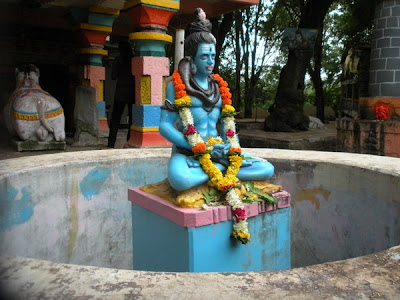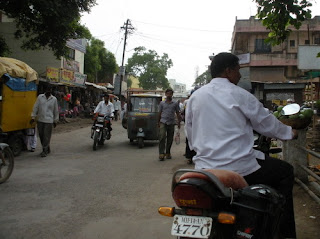For the last few weeks I have been visiting schools in tribal villages that surround Bali, Rajasthan. In addition to this, my research has focused on the connection between government laws, such as inheritance, dowry, child marriage, and that of the societal and cultural beliefs and practices of rural India. Meeting the different girls has brought me joy as they curiously and carelessly sought for my attention, and the commitment to stay informed on the issues they face at such a young age and as they grow into adulthood.
Child marriage in India can be defined as a marriage that is consummated in which the wife is under the age of 18 and/or husband is under the age of 21. Regardless of the national laws that are in place that prohibit child marriage, it is still widely practiced and a deeply rooted cultural value and expectation within society in many regions. In the state of Rajasthan, it is estimated that 80% of marriages are among girls under the age of 15 (Gupta, 2005, p. 2). The enforcement of the laws is important in this area, and yet for the most part the government either ignores or is uneasy about dealing with such personal laws when they occur in traditional communities. Looking the other way causes the community to continue holding marriages that involve brides that are underage because the community has the understanding that if the government does not care, then neither should they. This further encourages the cycle of poverty amongst communities with child marriages because it leads to higher child bearing rates, low economic and educational status, and poor health conditions.
The Marriage Bill of 1994 recommends “the enactment of a uniform law relating to marriages and for the compulsory registration of marriages, with the aim of preventing child marriages and also polygamy in society” (Marriage Bill, 1994). This would help many communities prevent child marriages from occurring, and lead to prosecution of the family that has carried out a child marriage. Unfortunately, the Bill, which could have been potentially helpful for the state of Rajasthan, was not passed. Although there have been many attempts within legislation to limit child marriage practice in Rajasthan, this continues to be an area of focus and struggle for many. As of now, there is no law that requires newlyweds to register their marriage with the government and state in Rajasthan.
Another legislative act that has been passed in India is the Prohibition of Child Marriage Act of 2006. This law was put in place to “prohibit the solemnization of child marriages” and for any matters that is of relation to a child marriage (Child Marriage Act, 2006). This Act prohibits a marriage that is below age of 18 for females and 21 for males. With the enforcement of this law, child marriage becomes punishable for the male if over 18, and/or the family that has participated in carrying out the marriage. The expected punishment is 2 years imprisonment and a fine of one lakh rupees for any who are involved, not including the child bride. The Act increases the severity of the punishment that was previously enforced from 1929. It also includes situations such as a child being enticed or taken from the legal guardian, forced into the marriage, or is sold and trafficked for the purpose of marriage, all of which are made void under law.

Rekha
During a monthly training session at a school in the Jalore district, I had the opportunity to meet a young girl named Rekha. She comes from a family of seven; her mother and father are both farmers, and she has two brothers and two sisters. Her favorite subjects are history, geography, and Hindi literature. Rekha is currently not enrolled in school.
Training Officer, Deepmala Sharma, facilitated and interpreted the interview for me, we were told by Rekha that she was married earlier this year, and is 18 years of age. There was something about her that told me otherwise; perhaps it was her bright, curious eyes or her silly, innocent giggling as I smiled at her. Frankly, I was convinced that she was much younger especially when she informed us that she left school after completing the 11
th standardS, which was just this past year. After some time we came to find out that she is 14-years-old. She only told us this because her family and in-laws do not want anyone to know that she is married at so young. The fact that Rekha knows that she is too young to be married, and that her parents and in-laws want her to cover it up, further complicates the issues of gender discrimination and inequality for women in India. Rekha is being manipulated and because of her young age, is being taken advantage of in order to support the system of child marriage.
I pressed to find out why she is not attending school and she explained that her in-laws do not want any continuation of her education. Rekha’s in-laws think that since their son has only completed the 9th standard, she would surpass him by finishing school which would make her status higher than his. Her future husband works in construction, and has no desire to complete any more schooling. It is believed that he is about 4-5 years older than her based on her story and the time in which he stopped attending school. By cultural standards and expectation, it is up to the in-laws to decide whether or not Rekha has an education. The in-laws are devaluing Rekha’s capability as a female in two ways: 1. by keeping her from reaching her full potential which would further increase her health, well-being, and decision making, and 2. by holding her status below that of a man which diminishes her right to equality between the sexes. Her parents would like to see her go to school, but as of now there is no way to convince the in-laws otherwise. They are submissive in obeying the in-laws wishes, and Rekha is not happy about this situation.
Determined not to give up, Rekha has decided that she will re-enroll in school and has been working on her application for the 12
th standard. She knows that her parents and family will support her decision, but is nervous as to what her in-laws reaction will be. When she is accepted back in to the school, Rekha will tell them and try to explain and make them understand her choice. She asked for our help in this situation, unsure of what to do or how to say it. I could see the passion in her eyes, and the strength and courage in her heart. We talked with her about her in-laws and how to get them to see her point-of-view. Avoiding any arguments at all costs would be best for her safety and well-being at this point. We came to the conclusion that if her in-laws continue to protest, then they should explain why they think it is a bad idea for her to go to school. Rekha could discuss with them why she should go to school and what benefits there are for herself and her future family.
Child marriage is an issue that young girls of Rajasthan face every day. With deeply embedded and intertwined social issues in Indian culture, child marriage becomes reinforced by the practice. Within child marriage comes many problems that challenge the livelihood of young brides. They have higher rates of early pregnancies, often unwanted, which can lead to high maternal and infant mortality. When there is an unwanted pregnancies, abortions that are unsafe for the mother are carried out. Sexually transmitted diseases can also be given to the bride if the husband has had prior sexual relations, which sometimes is the case if she is married to an older man. In the situation of Rekha, if she continues to be deprived of her educational needs and desires she runs the risk of losing any chance of knowing about proper health care for her self and future children. She may not be informed or aware of what resources are accessible to her, or how to find those that are not. The laws that have been passed to prevent child marriage have not been implemented to their fullest. It is not just the law that is important, but shifting the attitudes and beliefs about child marriage within the societal and cultural levels.

This is my final week of interning in India. I have been grateful for the time I have spent here and the people I have met. I could never have imagined that I would be so changed and influenced by this culture and by the many experiences that I have learned from.

















































